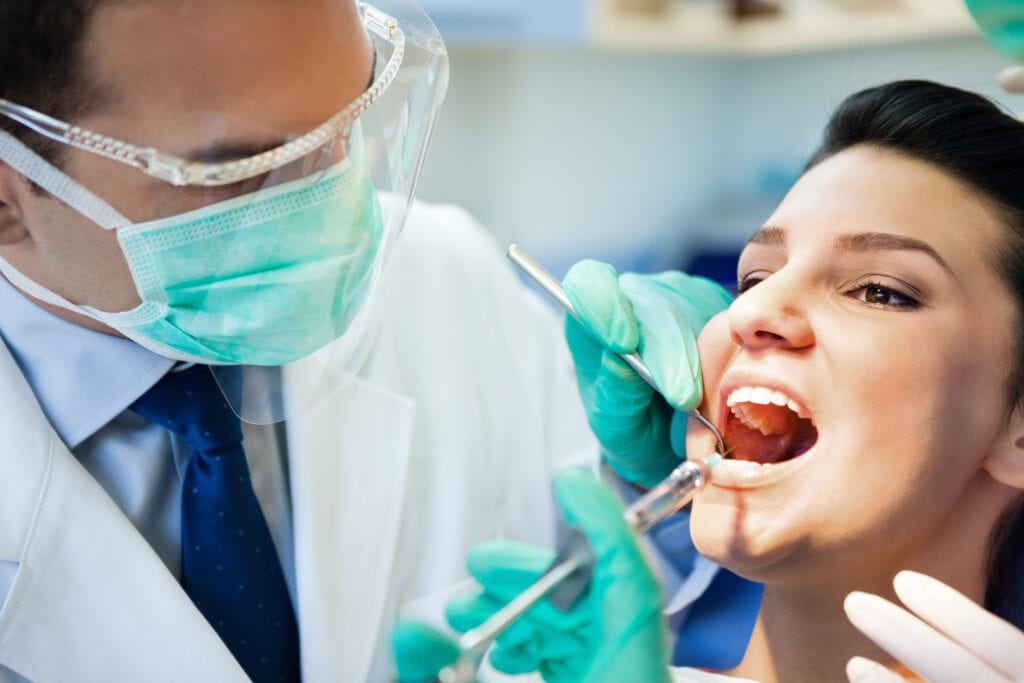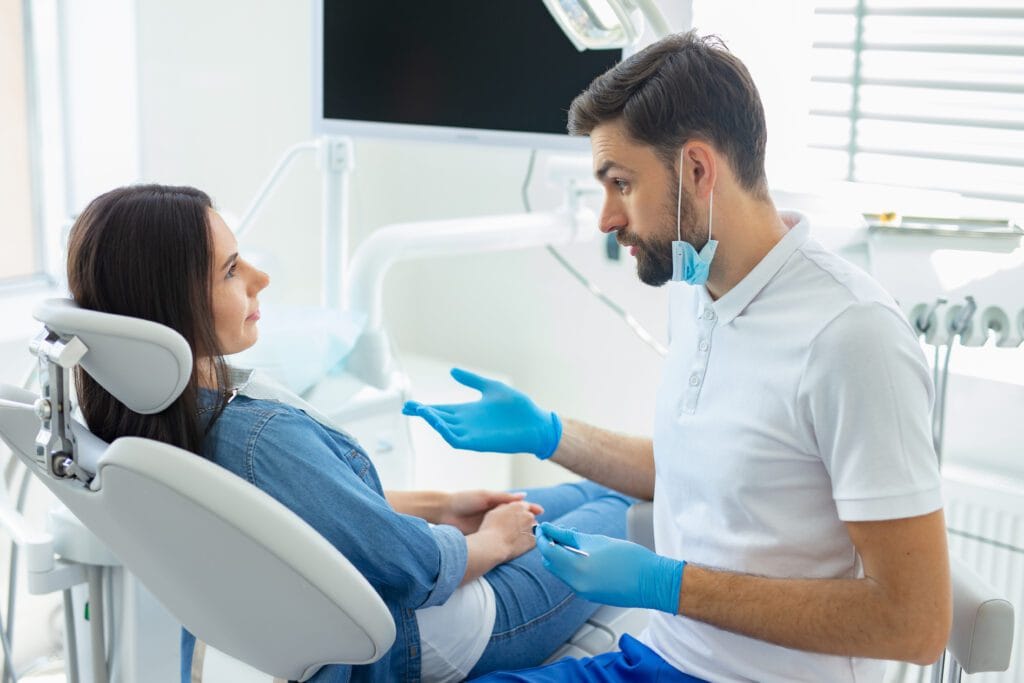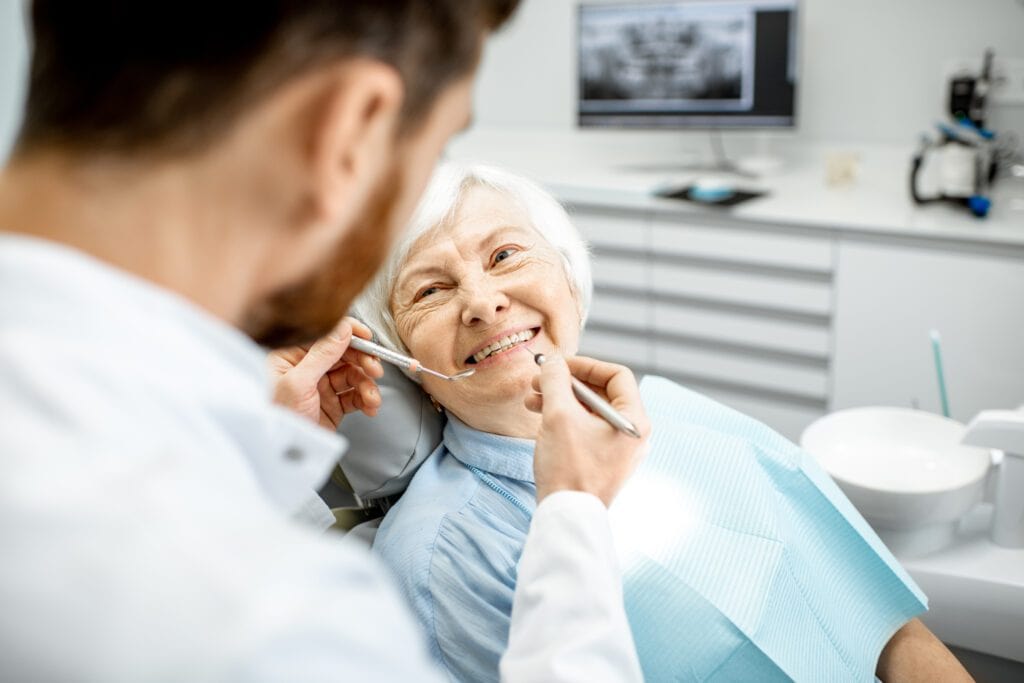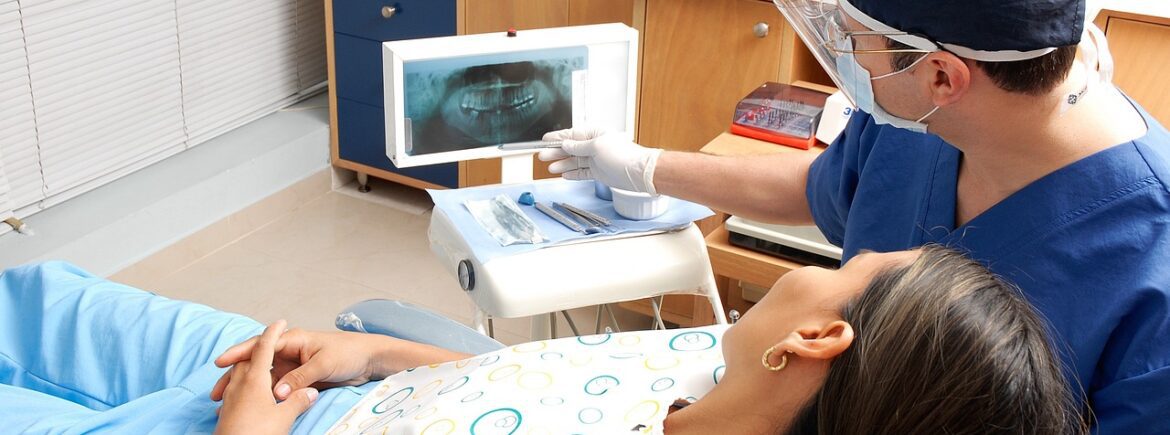What is Oral Cancer Screening?
Oral cancer screening is a simple check-up that could save your life. It’s a quick, painless procedure that checks for signs of cancer in the mouth and throat. This crucial health check involves a straightforward examination where a dentist looks for any unusual sores, lumps, or discoloured patches. It’s not just for people who use tobacco; everyone can benefit from regular screenings. Whether you are visiting a Perth dental clinic for a routine cleaning or specific concerns, adding this screening to your visit could offer peace of mind. Catching signs early can make a big difference in treatment success, and with quick appointments available, it’s easy to fit this important check into your routine health care.

Signs That Prompt Oral Cancer Screening
If you notice something off in your mouth or throat, it might be time for an oral cancer screening. Here are some signs to watch out for that indicate a need for a check-up.
Persistent Mouth Sores
Persistent mouth sores that don’t heal within two weeks might indicate a deeper issue. Such sores may be a common sign of oral cancer and should not be overlooked. Screening for these can help catch oral abnormalities early, which is crucial for effective treatment. If you notice sores that linger, it’s a good idea to consult your experienced dentist in South Perth for an oral cancer screening.
Unusual Lumps or Thick Patches
Unusual lumps or thick patches in your mouth or on your gums may be early signs of oral cancer. These abnormalities might feel rough to the touch or cause slight discomfort. It’s important to get these symptoms checked out during an oral cancer screening. Early detection and diagnosis can significantly improve the outcomes of treatment.
Difficulty Swallowing or Jaw Stiffness
If you experience persistent difficulty swallowing or feel stiffness in your jaw, these could be warning signs of oral cancer. Such symptoms may indicate that something is obstructing your throat or mouth internally. Oral cancer screening can help determine the cause and assess any necessary interventions. Be sure to have these symptoms evaluated by a professional.
Sore Throat or Feeling That Something is Stuck
A constant sore throat or a sensation that something is stuck in your throat may be more than just an annoyance. These symptoms may sometimes be linked to oral cancer, particularly if they persist. An oral cancer screening is a prudent step to rule out serious conditions. It’s important to address these signs early with your healthcare provider.
Numbness or Pain in the Mouth or Lips
Numbness or pain in the mouth or lips, especially when it appears suddenly and without obvious cause, should be promptly investigated. These sensations may be indicative of nerve damage or growths in the mouth, often associated with oral cancer. Scheduling an oral cancer screening could help identify the root cause of these symptoms. Early intervention is key to managing health issues effectively.
Voice Changes
Noticeable changes in your voice, such as persistent hoarseness, can be subtle signs of oral cancer. This symptom could indicate that cancerous cells are affecting your vocal cords or throat. An oral cancer screening can clarify the cause of these changes and guide appropriate treatment options. It’s crucial to monitor and act on such changes swiftly to enhance treatment success.
Preparing for Your Oral Cancer Screening Appointment
Preparing for your oral cancer screening appointment is straightforward and doesn’t require much from you, but a few simple steps can help you get the most from your visit.
What to Do Before Your Appointment
Make sure you don’t eat or drink anything for at least an hour before your screening. This helps the dentist see your mouth clearly and perform a thorough examination. If you’re a smoker, try to avoid smoking on the day of your appointment as well.
What to Expect During the Screening
The screening itself is quick and painless. Your dentist will look inside your mouth to check for unusual sores, lumps, or discolourations. They might also touch areas around your mouth and throat to feel for abnormalities. This exam shouldn’t take more than a few minutes.
Getting the Most Out of Your Visit
It’s a good idea to write down any symptoms or changes you’ve noticed in your mouth or throat before your visit. Share these details with your dentist to ensure nothing is missed. Also, prepare any questions you might have about oral health; this is your chance to get professional advice tailored to your needs.
Oral Cancer Screening: The Procedure Explained
Oral cancer screening is a vital procedure that’s both quick and straightforward. Here’s a step-by-step guide to what happens during the screening process at the dental clinic so you know exactly what to expect.
Welcome and Initial Consultation
When you arrive for your screening, you’ll first meet with your dentist for a brief consultation. This is your chance to discuss any concerns you might have and mention any symptoms or changes you’ve noticed.
Visual Examination
The dentist will start with a visual examination of your entire mouth. This includes your lips, gums, inside cheeks, tongue, roof and floor of your mouth, and the back of your throat. They’re looking for any signs of red or white patches, unusual sores, or lumps.
Physical Examination
Following the visual check, the dentist will use gloves to feel the tissues in your mouth. They’ll gently press around the jaw, under the chin, and around the neck to detect any unusual masses or nodules that might not be visible.
Discussing Findings
If your dentist finds anything unusual, they will explain what they’ve noticed and what the possible next steps might be. This could include further diagnostic tests or a referral to a specialist.
Guidance and Advice
Regardless of the findings, your dentist will provide advice on how to maintain good oral health and what preventive measures you can take to reduce your risk of developing oral cancer. They will also suggest when to schedule your next screening.
Conclusion of Visit
Before you leave, make sure any of your questions are answered. You’ll also likely set up a follow-up appointment or a routine check-up schedule, depending on your individual needs.

Risk Factors for Oral Cancer
Understanding the risk factors for oral cancer can help you make informed decisions about your health and the need for regular screenings. Here’s a straightforward look at the main lifestyle and genetic factors that can increase your risk.
Smoking and Tobacco Use
Tobacco use is one of the top risk factors for oral cancer. This includes smoking cigarettes, cigars, and pipes, as well as using chewing tobacco or snuff. Tobacco contains harmful chemicals that can damage the cells in your mouth, leading to cancer over time.
Alcohol Consumption
Heavy alcohol use is another significant risk factor. When combined with smoking, the risk increases even more. Alcohol helps harmful chemicals from tobacco to penetrate the cells in your mouth, which increases the damage they can cause.
Sun Exposure
Frequent and prolonged exposure to the sun without protection can also increase the risk of cancer, particularly on the lips. Using a lip balm with SPF and wearing a hat when outdoors can help reduce this risk.
Diet
A diet low in fruits and vegetables may increase your risk of oral cancer. These foods contain important vitamins and antioxidants that help protect against cancer.
Genetic Factors
While lifestyle choices play a significant role, genetics can also contribute. If you have a family history of cancer, it might increase your susceptibility to oral cancer.
HPV (Human Papillomavirus)
Some studies show that infection with certain types of HPV, especially HPV16, can lead to oral cancer. Vaccination and safe practices can help reduce the risk of HPV-related oral cancers.
Please note that while the items listed above are identified as risk factors for oral cancer, not all individuals exposed to these risks will develop the disease, and other genetic and environmental factors may also influence risk.
Advantages of Early Oral Cancer Detection
Early detection of oral cancer through regular screening can significantly improve the chances of successful treatment and recovery. Here’s why catching it early matters so much.
Higher Treatment Success Rates
Finding oral cancer early often means the cancer is still localized to one area and hasn’t spread. This makes treatments, which can include surgery, radiation, and chemotherapy, more effective. The earlier the cancer is caught, the higher the likelihood of removing it completely and successfully managing any health complications.
Less Extensive Treatment Required
Early detection typically allows for less aggressive treatment options. This not only can help preserve more of the healthy tissue in your mouth but also significantly reduces the side effects and recovery time associated with more intensive treatments that are needed for advanced cancer.
Better Quality of Life
Diagnosing oral cancer at an early stage can greatly improve your quality of life post-treatment. It often means that functions such as speech, swallowing, and breathing are less likely to be severely affected. Patients treated in early stages typically face fewer long-term health issues related to the treatment or the spread of cancer.
Cost-Effective
Early detection is generally less costly to manage than advanced cancer. Treatments for less advanced stages of cancer are not only more effective but are also less expensive than the complex interventions required for treating more advanced stages.
Common Questions About Oral Cancer Screening
Here are some of the most common questions about oral cancer screening, with clear and straightforward answers to help you understand this important check-up.
What exactly is oral cancer screening?
Oral cancer screening is a quick check by your dentist to look for signs of cancer or precancerous conditions in your mouth. The goal is to catch any signs early, when there’s a higher chance of successful treatment.
Who should get screened for oral cancer?
Anyone can benefit from oral cancer screening, but it’s especially important if you use tobacco products, drink alcohol heavily, have a history of oral cancer, or have been exposed to HPV (Human Papillomavirus). Regular screenings are recommended for adults, particularly those over 40.
What happens during an oral cancer screening?
During the screening, your dentist will look over the inside of your mouth to check for red or white patches, sores, or other abnormalities. They might also feel the tissues in your mouth to detect lumps or other irregularities.
Is the screening painful?
No, screening is a simple, non-invasive procedure that is usually painless. It involves visual inspection and touching, but no pain.
How often should I get screened?
It’s a good idea to have an oral cancer screening during your regular dental check-up, which should be every 6 to 12 months. If you’re at higher risk due to factors like tobacco and alcohol use or a family history of cancer, your dentist might recommend more frequent screenings.
What should I do if they find something during the screening?
If your dentist finds anything unusual, they may suggest further tests to diagnose the problem or refer you to a specialist. It’s important to follow up quickly to understand the issue and start treatment if necessary.
FYI
While oral cancer screenings can be crucial, especially for those at high risk, it’s important to note that current evidence from health organizations like the US Preventive Services Task Force (USPSTF) does not support routine screenings for all individuals due to insufficient evidence that it improves health outcomes for the general population.
Furthermore, patients should be aware of potential risks such as false positives and overdiagnosis, which can lead to unnecessary anxiety and treatment. Discussing the benefits and drawbacks of screening with a healthcare provider can help in making an informed decision that considers both the potential benefits and the limitations of screening tests.

Book Your Oral Cancer Screening Today
Take a proactive step towards your health by booking an oral cancer screening with us today. Our friendly team is committed to providing a supportive and caring environment, ensuring your visit is comfortable and informative. Secure your appointment now to benefit from our expert care and state-of-the-art facilities.
Acts Dental offers various dental services including expert wisdom teeth removal in Perth and emergency dental services in Perth.
Protect your health and gain peace of mind with a simple, quick screening that could make all the difference. Book your appointment by calling us at (08) 9474 5083.
We are proud to announce that we are a NIB preferred provider, Bupa preferred provider, Medibank preferred provider, HBF preferred provider, and HCF preferred provider dentist in Perth.


